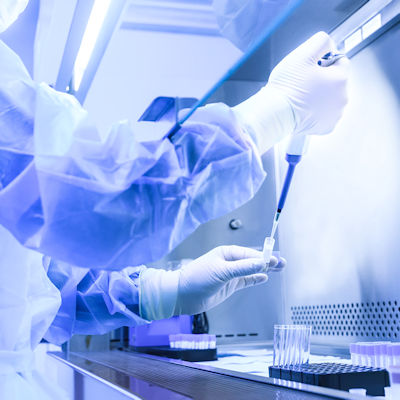The biotech industry was instrumental in helping develop and ship vaccines for COVID-19 in record time. But biotech's role in the pandemic -- and the pandemic's role in shaping the industry, the economy, and innovation -- won't fade away, even as the vaccines are administered to the public, according to leaders from the Biotechnology Innovation Organization (BIO).
During the session, Dr. Michelle McMurry-Heath, PhD, president and CEO of BIO, and Dr. Jeremy Levin, PhD, CEO of Ovid Therapeutics, and chair of BIO's board of directors, discussed the long-lasting effects of the COVID-19 pandemic on the biotechnology industry.
"We have seen the transformative power of science" in 2020, and it's incredibly powerful, according to McMurry-Heath. The applications of science unfolded in real time as the biotechnology industry responded to the global pandemic, she said.
Levin commented that while seemingly "clueless" at the beginning of the year, the biotechnology industry has come together and gathered strength -- much like a tsunami growing in the ocean -- to confront and tackle the SARS-CoV-2 virus.
But "have we done enough to prepare our healthcare systems and communities in the U.S. to successfully administer the highly efficacious vaccines that were developed in 2020?" asked McMurry-Heath in response to a question regarding what hurdles she foresees ahead for the biotechnology industry.
To her, the issue lies at the intersection of public health and biomedical research. As an industry, "we need to prepare for adverse events, because they will happen," she said. It is the industry's responsibility to make the public aware of this and to set expectations so as to not further erode confidence in vaccines.
Levin added that every biotechnology employee, whether or not they are directly involved in the response to COVID-19, is an ambassador for truth and fact. He believes it's the biotech industry's responsibility to educate those who oppose vaccination on the value of vaccines for treating disease.
Pivot to infectious diseases
During the COVID-19 pandemic, there has been a massive pivot of biotechnology companies to pursue infectious disease research. There are 191 COVID-19 vaccine candidates and over 800 clinical trials for various treatments and vaccines, many under development by companies with no prior experience in the infectious disease space. Inevitably, not all of these products and companies will achieve funding, development, or regulatory success.
However, these efforts by both small and large biotechnology companies, regardless of whether they are ultimately successful, should be applauded. McMurry-Heath explained that the complexity of COVID-19 disease has allowed a role for many types of drug mechanisms to be effective. We are only now starting to see the results of this new focus in terms of new therapeutics and vaccines.
So when it comes to startup and small biotechnology companies that moved to address COVID-19 but may not be successful, Levin urged them to find a way to "weather the storm." If they can do so, and "follow the science," he is sure that investors will eventually come. He adds that "innovation is sticking," meaning that investors will reward innovation, imagination, and willingness to take risks more than ever before, and are less likely to buy into retreads of previous ideas.
As a result of the pandemic, companies that pivoted to infectious disease work may have opportunities to pursue new classes of therapeutics and novel areas of research. As an example, McMurry-Heath explained that just 20 years ago, the industry was gaining a basic understanding of immunology. Now, we know that immunology is fundamental to everything and applies to every disease. So, if companies are innovative and are willing to reinvent their science, there is hope for even more transformative solutions in the future.
In terms of long-term effects on the biotechnology industry, McMurry-Heath and Levin agreed that it is a new era for the industry, an opportunity to reset the industry and set expectations for how fast science can respond to a societal need.
Levin commented that this is a time for the biotechnology industry to build bridges with policymakers and form consensus that the industry is strategic to the nation and the globe. He believes that in order for policymakers to effectively deal with the chaos of a pandemic, they must understand that the industry is an essential frontline resource and give it "primacy at the table."
"We have a new impetus, new urgency, and a new focus in science," McMurry-Heath concluded.
Copyright © 2021 scienceboard.net




